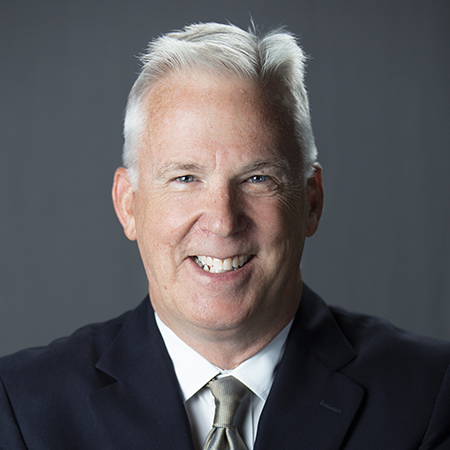Data tokens on this page
Find an Expert
Find an Expert
Planning and Building an Eldercare Team
What actions, if any, should a family take if it appears a parent is experiencing diminished mental capacity?

Andy Knott, CFP®, J.D., MBA
Senior Vice President
Wintrust Investments
Mom and Dad cannot remember where the accounts are, what bills they need to pay, email addresses, passwords, subscriptions, or where they left their keys. It is a common development, and it does not happen overnight, but your parents’ personalities and mental abilities can change right before your eyes.
What actions, if any, should a family take if it appears a parent is experiencing diminished mental capacity? What do seniors need as they get older and what resources and programs are available in the community? Increasingly, these are more than mere hypothetical questions. Caring for an aging parent requires teamwork, including giving due consideration to building a virtual “eldercare team” of professionals and family members.
Because the topic is often awkward and uncomfortable, many adult children have never been invited into their parents’ end-of-life planning, much less their financial lives. “Who has the healthcare proxy?” is not happy banter at Thanksgiving dinner. Communication is important. The first step might be a family meeting. However, having those tough conversations about end-of-life is usually easier said than done. Who is going to be the facilitator? What are the goals? Who does what? However the meeting be conducted, it is vital that it not be about correcting perceived wrongs from the past. Rather it should be an objective discussion about how best to support Mom and Dad.
That is where an experienced financial advisor is in a unique position to be a facilitator. Compared to an attorney (documents drafted), doctor (treatment as needed), or accountant (annually), an advisor’s relationship is usually more frequent and ongoing. Whether it is the financial advisor or a family member, his or her job is to facilitate the conversation, not direct it. To that end, each family member should be polled about their concerns and what they want to accomplish prior to the meeting.
While the advisor should have no preconditions about the meeting’s result, one goal should be that a “client advocate” be identified with the approval of the client and other family members. This client advocate has the right to receive information about the client’s financial situation from the advisor and will represent the legacy aspects of a family’s eldercare team.
Typically, the team would also include experts in three other areas: legal, health care, and financial. Depending on the circumstances, the team might also include a senior real estate specialist or a liaison from a long-term care insurance provider. The priorities of these experts should include the following:
Legal
At a basic level, an elder law attorney will provide or review a Last Will and Testament, Power of Attorney for Health Care, Durable Power of Attorney for Property, a Living Will, and a HIPPA Medical Information Release.
Health care
Can Mom or Dad “age in place?” If so, who will keep their medical schedules, administer medication, and accompany the parent to medical appointments? That role is often filled by a medical care manager or geriatric consultant who will know what forms to fill out for Medicare or Medicaid claims, what rehab or nursing home facilities make sense in your area, the legitimate rates for personal-care help, and what kind of walkers and shower equipment are best.
Financial considerations
This is not about asset allocation or getting the highest return. Instead, it is about addressing questions such as: Are we okay financially? Will we need financial help, or will our children need us to help them? On a practical basis, it is not unusual for “children of the depression” to have a dozen or more accounts at various financial institutions. Each institution may have its own rules about handling account and may use their own POA form, or possibly the IRS’s Form 2848. The focus should be on preserving and ultimately distributing the assets, including meeting deadlines for required distributions from retirement accounts.
Legacy
How will we be remembered by our children and grandchildren? Can we impart our wisdom? How do we make sure our important things—such as digital photos or email correspondence—are shared?
Commonly, dementia is a permanent, progressive, and irreversible condition. Alzheimer’s disease is a type of dementia and accounts for 60 to 80 percent of cases and is 100 percent fatal. Experts now say one of the best ways to preserve a legacy is to not wait for dementia to become a crisis. An excellent first step—and one of the nicest acts a parent can do for an adult child—is to make a thorough list of accounts, financial and legal documents, automatic debits, passwords, and login credentials; put it in a safe place and make sure a trusted family member can get to it.
While only a physician is capable of making a medical diagnosis, your Wintrust Wealth Management professional can help you plan and build an eldercare team to help you and your family navigate the financial challenges that may come as a result.
Request an Appointment
Ready to start a conversation?
Call us at 847-920-3072 or:
Serving Clients At:
Andy Knott, CFP®, J.D., MBA also serves clients by appointment at the following locations:

